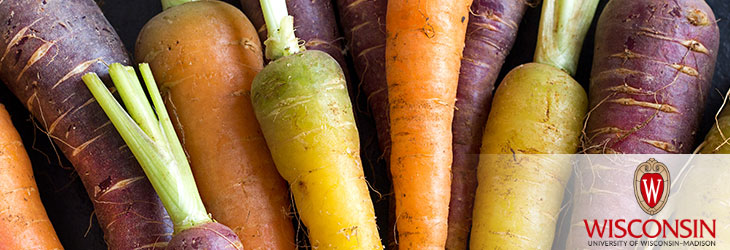Animals, Agriculture & Food

Alternative Transit Peptides To Increase Plant Transformation Efficiency
WARF: P210224US02
Inventors: Michael Petersen, Ray Collier, Edward Williams
The Invention
The present invention is a new plant transit peptide that can be used to improve the efficiency of plant gene transformation. The UW-Madison researchers analyzed sequences of thousands of proteins involved in organelle trafficking in plants. They pared that list down to three putative transit peptide sequences and tested the ability of the peptides to transform soybean, chickpea and cannabis plants with the GUS reporter system. One of the three peptides provided a greater level of genetic transformation than a traditional CTP.
The three alternative targeting peptides identified in this disclosure are an ambiguous bi-organellar transit peptide(dTP), an ER targeted peptide, and a mitochondrial targeting peptide. These peptides were fused to the aadA gene (GUS) and tested in plants to determine how they compared to the standard vectors that contained either no transit peptide (cytoplasmic) or a petunia derived CTP. Results showed that the bi-organellar transit peptide performed much better (higher expression of the reporter system in the plant) than the cytoplasmic delivery and CTP controls in a number of cases. Two versions of the bi-organellar transit peptide (Arabidopsis and soybean) were used as well, and the Arabidopsis version proved more successful in the GUS transformation experiments than the soybean version. Some limited genetic transformation success was seen with the ER target peptide, however the mitochondrial targeting peptide failed to provide measurable GUS reporter.
The inventors hypothesized that the improvement in transformation may be due to the bispecific nature of the peptide, not focusing gene transformation on one organelle. They note that CTPs can lead to the destruction of the chloroplast and cell death. But by targeting two organelles, it is possible that any organelle stress in each remain low enough for more cell survival which results in higher expression levels.
Tech Fields
For current licensing status, please contact Emily Bauer at [javascript protected email address] or 608-960-9842